- Details
-
Created: Tuesday, 04 August 2020 16:12
-
Written by Cassandra Howarth
By mid-July, Bolivia’s healthcare system was on the brink of collapse, with 20 out of 34 hospitals closed due to a lack of medical staff and equipment. In just five days, police recovered 420 bodies of victims of Covid-19 from the streets of the country’s largest cities, La Paz and Santa Cruz. In Cochabamba, corpses were laid out in black bin bags, or boxed up in cardboard coffins produced by fruit packing companies as crematoriums were overwhelmed. The main centre for coronavirus testing declared a state of emergency. The coup government, flailing in the midst of a political and health crisis it is unwilling and unable to resolve democratically, has used the crisis to perpetuate its illegitimate rule; on 23 July the ‘interim’ coup president Jeanine Añez – herself a victim of the virus – declared that elections would be postponed once again, this time until 18 October. CASSANDRA HOWARTH reports.
Death and dereliction
By 23 July, Bolivia had recorded more than 60,000 cases of Covid-19 infection and 2,300 deaths (with the real figure much higher), in a country of 11 million people. While socialist Cuba, with a similar population, has controlled the spread of the virus (see p10), in Bolivia the pandemic is not expected to peak until September. The actions of Bolivia’s neoliberal coup government have, inevitably, created an economic and health crisis borne overwhelmingly by the working class and indigenous communities. Six medical societies have resigned from the government advisory board in protest at its inadequate measures. Hundreds of medical professionals have tested positive after being sent into Covid-19 wards without protective gear. Since mid-June hospitals across the country have had to refuse new patients. On 17 July in El Alto police used teargas to disperse residents protesting about the dumping of corpses in landfill. Luis Arce Catacora, the presidential candidate for the Movement towards Socialism (MAS) of former president Evo Morales, has repeatedly called for Bolivia to accept help from Cuban medical teams – after those working in the country were expelled by the coup government last year.
A coup within a coup
Rather than address the growing needs of an impoverished and increasingly desperate working class, Bolivia’s right-wing is using the crisis to consolidate its grip on power. Elections due in May were postponed until August, then September and now October. Arce, the MAS candidate, is way ahead in the polls on 41% – enough to win an outright victory and more than double the pro-US ‘centrist’ Carlos Mesa, who lost against Morales last October; Añez is barely scraping 13%. Her illegitimate government, and the elite right wing (and predominantly white) sections of the electorate it represents, have no intention of holding an election they cannot possibly win. The neo-fascist Civic Committee of Santa Cruz called for elections to be cancelled altogether, while coup-monger Luis Camacho appealed to the Organisation of American States (OAS) to prevent them becoming ‘an act of resurrection’ for MAS. The OAS is an imperialist proxy that played a key role in manufacturing accusations of fraud against Morales in October 2019 and precipitating the coup against his government. Añez’s party has called for Arce to be banned from standing, and is putting pressure on the electoral council to ban MAS altogether as a political party. A number of MAS politicians, as well as community leaders and journalists, have been arrested, teargassed, beaten and intimidated.
Meanwhile, a second coup has been taking place within Bolivia’s elected legislative assembly, which is majority MAS. On 22 July, the coup government illegally forced through promotions for dozens of army generals, following the blatant intimidation of the assembly in May, when troops in full military gear stormed the building and threatened legislators, giving them one week to approve the reorganisation and promotion of the military. The Interior Minister threatened to jail any MAS senator who did not comply. The reorganisation will serve to protect the military before investigations into the November 2019 massacres against pro-Morales protesters in Senkata, Sacaba and Oyejuyo begin. Activists and union leaders have warned that the broader intention is to establish a full military-backed dictatorship ahead of any elections.
In the words of Valeria Silva Guzmán, a former MAS congresswoman now claiming asylum in Mexico, ‘the installation of the Añez government has been marked by the blood of Bolivians. Deaths, prison, repression, political persecution … it’s basically a regime of terror.’
Working class announces ‘indefinite mobilisation’
Throughout the crisis, the Bolivian working class and indigenous organisations have mobilised against the coup government, despite brutal police repression. During the harsh lockdown restrictions in March, communities faced down the security forces to demand water, food and healthcare, and many working-class organisations were instrumental in the distribution of food to the poorest. Since the easing of lockdown measures in June, there have been constant mobilisations to defend workers’ rights. In one dispute, residents and workers blocked access to the largest rubbish tip in Cochabamba. The government cut off the water supply and police and army used tear gas and bullets but the blockade did not end until 11 July when the local authorities agreed to the protesters’ demands. On 8 July teachers’ unions, campesino workers’ organisations and other social movements blocked the streets of La Paz in protest against the fact that the ‘virtual education’ planned for students during the pandemic discriminated against the rural poor; they burned a coffin representing the coup Education Minister and demanded his resignation. On 14 July, the country’s labour federation, COB, organised a national protest for ‘democracy, health and education’ in response to the privatisation of education and healthcare. Rural teachers marched for days to join the protests.
Now Bolivia’s working class and indigenous organisations, including the powerful campesino unions of the Tropico – who fought to restore Morales to power last November and are veterans of the massacre at Sacaba – have warned the regime that unless it reverses its decision to postpone the election, it will face ‘indefinite mobilisations’ to restore democracy.�
FIGHT RACISM! FIGHT IMPERIALISM! 277 August/September 2020


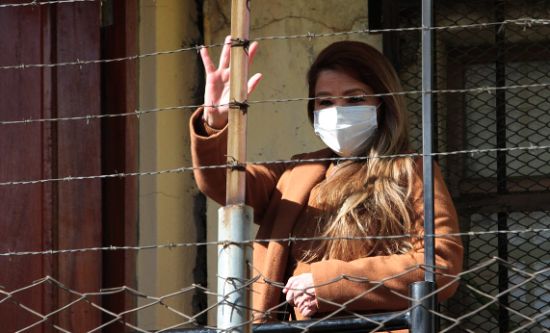
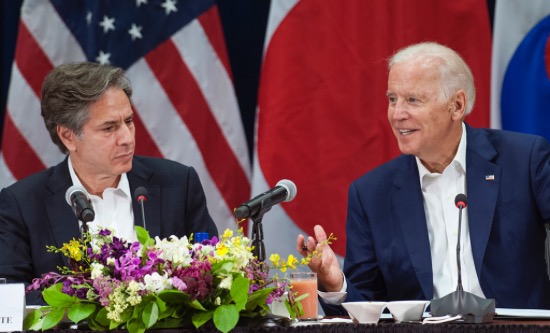
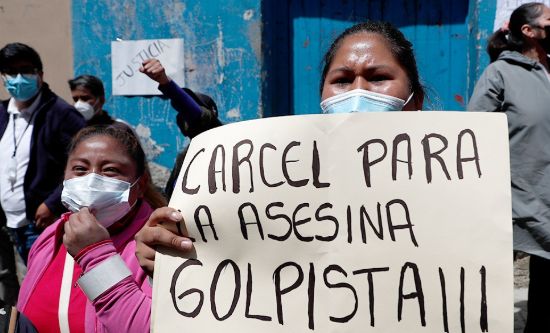
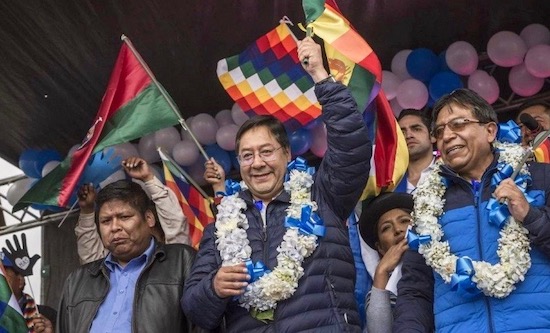
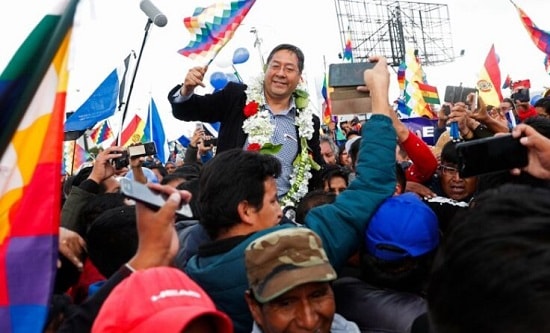
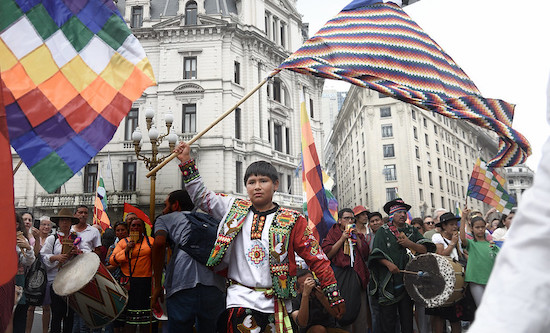
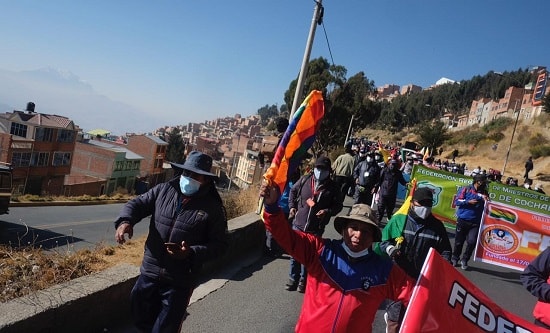
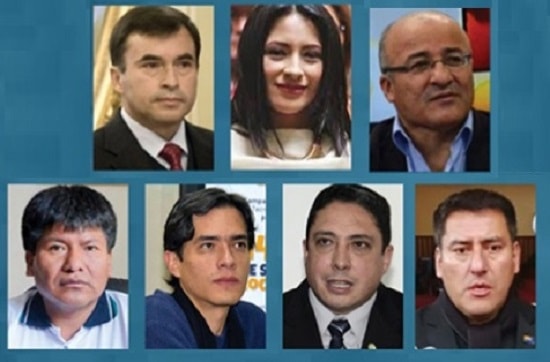
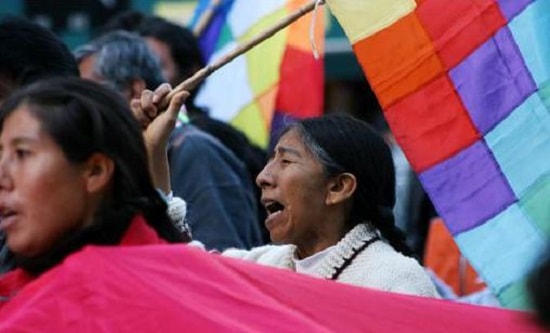
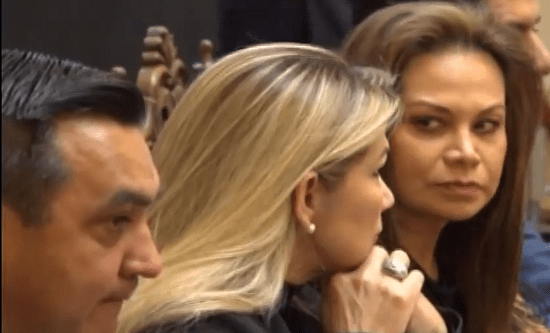
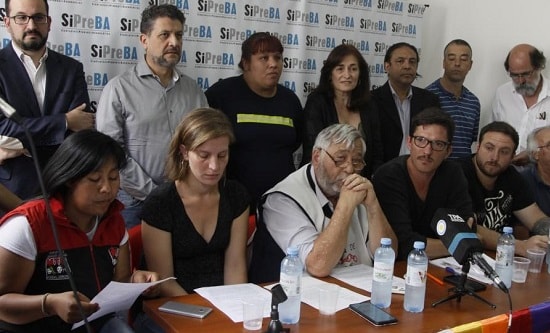

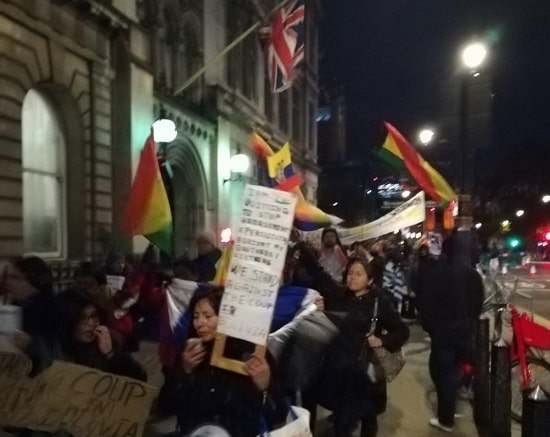
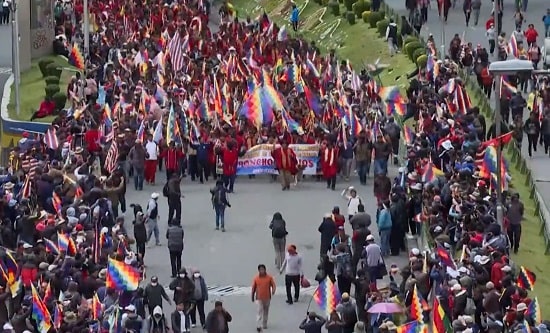
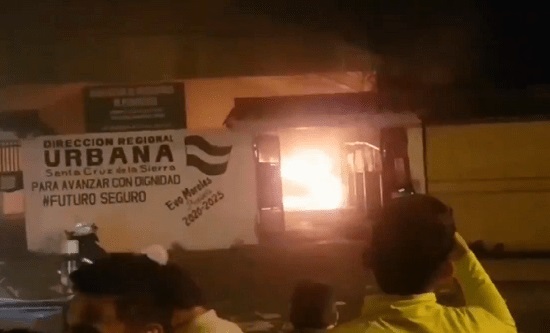
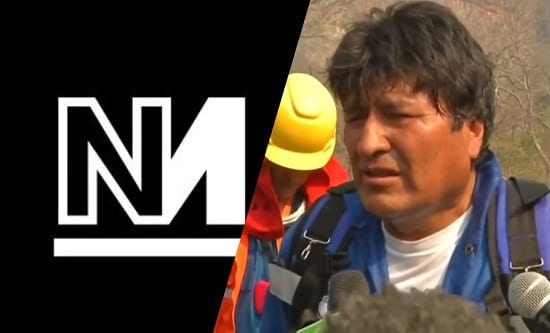

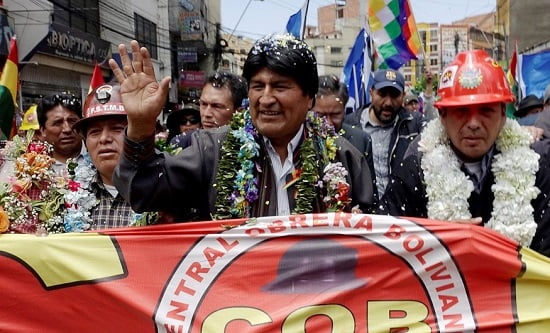


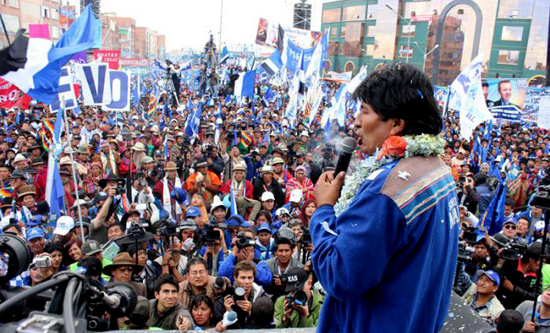
 On 7 December 2012 a 5-month consultation about a proposed highway to be built through Bolivia’s Isiboro Secure National Park and Indigenous Territory (TIPNIS) came to an end. Of the territory’s 69 indigenous communities, 55 approved the highway, three communities rejected the proposal and 11 refused to participate in the consultation.
On 7 December 2012 a 5-month consultation about a proposed highway to be built through Bolivia’s Isiboro Secure National Park and Indigenous Territory (TIPNIS) came to an end. Of the territory’s 69 indigenous communities, 55 approved the highway, three communities rejected the proposal and 11 refused to participate in the consultation.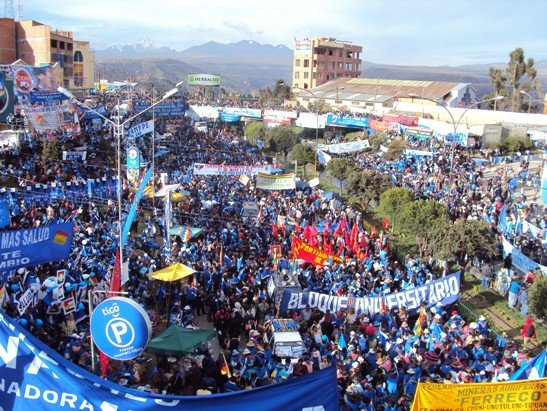 BOLIVIA, 6 DECEMBER 2009. Evo Morales, incumbent presidential candidate for Movimiento al Socialismo (Movement towards Socialism, MAS), has been returned as President of Bolivia with a landslide 62% of the vote. MAS also won 25 out of 36 seats in the Bolivian Senate, gaining the two-thirds majority necessary for approving constitutional changes, key legislation, and judicial appointments.
BOLIVIA, 6 DECEMBER 2009. Evo Morales, incumbent presidential candidate for Movimiento al Socialismo (Movement towards Socialism, MAS), has been returned as President of Bolivia with a landslide 62% of the vote. MAS also won 25 out of 36 seats in the Bolivian Senate, gaining the two-thirds majority necessary for approving constitutional changes, key legislation, and judicial appointments.

